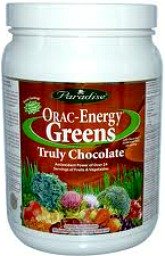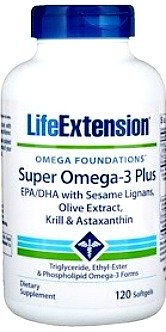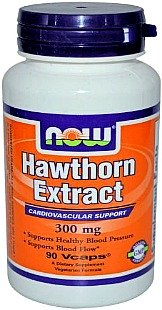Slow paced cardiovascular exercises: First station to a better heart
Slow paced cardiovascular exercises, also known as aerobic exercises, are a great way to improve your cardiovascular system, especially if you are just starting to exercise or you have heart disease.
Matter of fact is that, in a way that regular exercise is necessary for keeping you healthy and fit, that way aerobic exercises are, or at least they should be, an important part of your exercise regime. If nothing else, you should use them at least for a warm up, before any kind of activity.
Slow paced cardiovascular exercises are types of exercises that are preformed for longer periods of time at moderate pace which for some people is quite boring.
This doesn't need to be the case. There are many types of aerobic exercises that you can choose from. That way, you can get all the benefits of aerobic exercises which are proven to be the best exercises for people with heart problems, especially if you are just starting to exercise.
TYPES OF SLOW PACED CARDIOVASCULAR EXERCISES
Walking is the most basic aerobic activity that we perform every day although these days many of us are tied to desk because of our jobs. If you have this kind of job take a short break every once in a while and have a short walk. Also, at your spare time, you can take a walk with your friend/partner or take your dog for a walk, if you have one.
This is the main aerobic exercise which is preffered by most people and all you need is your will and running shoes. You can run on a treadmill or outside. If you can, rather workout outside, preferably in the nature. If you are a beginner, start slow and work your way up.
First of all, not every one knows how to swim but we can all learn. Swimming is great because it doesn't put much stress on your joints, it is a great way too cool down during hot weather and it's the best type of exercise for people with back pain. During winter season you can join a club and still swim recreationally.
Cycling can be one of the most enjoyable cardiovascular exercises. Gather a few friends, rent a few bicycles, if you don't have any and have your own tour. Choose nature insted of city, if you can. Cycling is also great because it doesn't put much stress on your back, knees, hips and ankles while it strengthens your leg muscles and your heart. Professional cyclists that do "Tour de France" have the lowest heart rates of any athlete due to the fact that, besides there legs, only working muscle is the heart muscle. If you don't know how to ride a bike, you can choose stationary one but then you are missing a lot.
If you like to dance, this is the right aerobic activity for you. Practice it at home or join a dance club and invite your partner or friends to join you. Aerobic dance is a great entire body exercise that improves not just your fitness level but also your agility and flexibility.
BENEFITS OF SLOW PACED CARDIOVASCULAR EXERCISES
Aerobic exercises can improve your overall health because of which you should make them important part of you exercise regime. Below are just a few of many benefits that you can get from regular aerobic training.
SIDE EFFECTS OF SLOW PACED CARDIOVASCULAR EXERCISES
There are some guidelines to be followed, in order to avoid overtraining and side effects that regular exercise can cause, especially aerobic exercises.
This is caused by constant repetitive motion, during aerobic training, that can last for an hour. It can lead to loss of cartilage which in normal conditions acts like a cushion. If there is not enough cartilage, you may experience pain, joint deformities and limited range of motion.
Exercising too frequently for too long, which is quite often when it comes to aerobic exercises, can adversely affect your hormonal balance and immune system which can reflect on your physical, emotional and mental health. It is caused by increase in stress hormones, cortisol being the most significant. Cortisol by itself ain't bad but too much of it is not good. Long term elevated cortisol suppresses your immune system, causes breakdown of muscle tissue, increases fat storage and affects other hormones like testosterone, DHEA, HGH and estrogen, in a bad way.
Prolonged cardiovascular exercises can lead to excesive free radical formation which causes oxidative stress. Oxidative stress may break down tissue and increase the risk or cancer as well as heart attack.
Decrease of Fast-Twitch muscle fibers causes the loss of explosive power and speed which is normal part of aging but it shouldn't be a side effect of your training, related to too long and too frequent aerobic exercises.
CONCLUSION
To get the most of aerobic exercises and avoid side effects related to overtraining, limit your workouts at three aerobic training sessions per week lasting from 20 minutes to max 1 hour.
If that is not enough for you, consider including 1-3 anaerobic training session in between cardiovascular exercises. That way you maximize your cardio training results and get all the benefits that anaerobic training provides.
If you have back or joint problems, consider cycling or even better swimming as part of your regular aerobic training.
If you start to feel exhausted due to overtraining, take a break and give your body a chance to recover. The best way to do this is to sleep and eat healthy foods which includes fruits, vegetables, healthy carbs and fats as well as enough protein, in order to give your body nutrients necessary for recovery.
- Heart Healthy Diet: Simple Tips and Guidelines
- Learn everything you need to know about heart healthy diet and find the right one for you. Implement few simple tips for immediate benefits.
- Heart Healthy Foods: How to Get the Most from Them
- Heart healthy foods can improve cardiovascular system function. Foods good for the heart are bursting with vitamins, minerals and rejuvenating phytochemicals.
- Herbs for the Heart and Cardiovascular System
- You have heard for hawthorn and garlic but there are few other herbs for the heart which can help in treating heart disease, naturally.
- The Best Heart Health Supplements
- Besides fish oil, there are several heart health supplements which can be useful. This includes Coenzyme Q10, Salicin, vitamin D3 and few others.
- Heart Healthy Spices
- Although there are many heart healthy spices out there, each of them can help prevent and treat heart disease in its own way, thanks to different types of flavonoids in these heart spices.
- Stress and Heart Disease: How are They Connected
- Stress and heart disease are closely related. In order to decrease the risk of heart problems, we have to learn how to handle the stress and treat its consequences, if we are unable to avoid it.
- Cardio Exercises for the Heart and Cardiovascular System
- Cardio exercises are vital part of natural heart disease treatment. However, which kind of heart exercise you should preform, varies from person to person.
- Good vs Bad Cholesterol: How to Improve Cholesterol Values
- Good vs bad cholesterol conflict is somewhat misunderstood. There is no good or bad cholesterol but only high or unbalanced cholesterol.
- Good Fats vs Bad Fats: Nutritional Facts and Guidelines
- What is the real truth when it comes to good fats vs bad fats? How much dietary fats should you consume daily and what are the best food sources of healthy fats?
- High Blood Pressure Remedies
- High blood pressure remedies range from tips and lifestyle modification to herbs and supplements. However, the method that works for someone else, may not work for you.
- Normal Heart Rate: How is Regulated and Influential Factors
- Normal heart rate varies from person to person. Although, age affects resting heart rate, there are many other factors that can raise or decrease heart rate.
- How to Lose Fat: Overlooked Tips for Weight Loss
- How to lose fat is surely one of the most intriguing questions for so many people. However, the answer is very simple. Eat healthy foods, perform fat burning exercises and take care of your hormones.
- Hormones and Heart Disease Connection
- Don't neglect hormones and heart disease connection. If you want to treat or prevent heart disease you have to balance your hormones.
- Heart Disease and Immune System Connection
- Heart disease and immune system connection is often overlooked, while trying to improve cardiovascular system function. However, there are several things you can do to change this.
- Dental Health Heart Disease Connection: Facts and Tips
- Dental health heart disease connection is one of three overlooked factors, along with hormones and immune system. However, with smart and effective approach we can change this.
- Causes of Heart Disease
- There are many causes of heart disease and factors that can increase or decrease your risk for developing heart related problems. Check how to turn the tide in your favour.
- Symptoms of Heart Disease
- There are few main symptoms of heart disease. Find out which are they, how to recognize them as well as my personal experience with some of them.
- Diagnosis of Heart Disease
- Accurate diagnosis of heart disease is the first step toward recovery. You can't start with treatment before you know what kind of disease you have, obviously.
- Treatment for Heart Disease: Medications and Surgeries
- Standard treatment for heart disease consists of surgeries, medications and devices. Which one is right for you, depends on your condition.
- Heart Disease Blog
- This is a blog about natural remedies, personal stories, helpful herbs and supplements, workout program as well as other tips and facts which may help people faced with heart disease.
- Contact Me
- Ask questions and leave comments about this site here.
- About the Author of Heart Health Guide
- About the author of Heart-health-guide.com website.
- Heart Health Guide Sitemap
- This is sitemap of Heart Health Guide.com. If you want to get better overview of informations on this website, you can get it here.
Copyright © - Heart Health Guide - All Rights Reserved.



